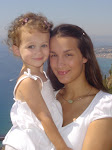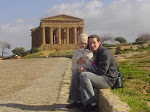In 2000 I was promoted to Petty Officer Third Class. For those of you not familiar with the military this advancement is a big step in your military career. This promotion is not simply given to everyone; it is earned through positive evaluations and of course an exam of general military knowledge and knowledge of your specific rating (job). I was a Hospital Corpsman and I was proud to be promoted early in my career. No longer did I have to be apart of the “french fry” group. Those that are not of a Petty Officer wear stripes on their sleeve designating their rank, they look like fries. I was now able to wear a chevron and to be apart of a group that I looked up to and learned from. From the moment I entered the military I set my goal to do well and earn a chevron. The time of the ceremony was a much desired event, ritual.
While reading chapter four there were so many points made that reminded me of the promotion ceremony. On page 97 the author explained that “by a group’s performing a ritual, it is in essence designating a moment in time during which its members are required to pay attention to some of the rules and/or beliefs held by or prompted by the group. And that goal of the ritual isn’t that members simply pay attention to these ideas. Often the more important objective is that they are persuaded to believe that the values portrayed or referred to during the ritual are indeed real, true values the group holds.” During the promotion we as a group recited the Navy Petty Officer’s Creed, Hospital Corpsman’s Pledge, as well as the Sailor’s Creed. While reciting these words I felt honored to be apart of the group. I deserved this position and valued every single word as I recited them, as did my peers and the Petty Officers before us.
The promotion ceremony falls into the “high context” ritual as explained on page 99. The promotion was “stylized and occurred at a set time for specific, announced purposes, there was a dress code, it was conducted by an experienced member of higher ranking of the group, and we had specific actions to perform as well as words to recite.”
I never thought of promotion ceremonies as being considered rituals. After reading chapter four I realize what components make a ritual in fact a ritual, and therefore have thought of other times in my life that I have been apart of a ritual.
“This blog entry is my response to the number four reflection question.”
Sims, Martha C., and Martine Stephens. Living Folklore An Introduction to the Study of People and Their Traditions. Logan, Utah: Utah State University Press, 2005.
Sunday, November 4, 2007
Subscribe to:
Post Comments (Atom)








1 comment:
Nice (and congratulations!)
Post a Comment